Photographs: Chris McGrath/Getty Images
In our country women are not encouraged to take up sport. In fact, they are usually groomed to become homemakers.
But the scenario is changing.
India had 23 women in a contingent of 81 athletes at the London Olympics.
That's because today it is the women's archers, shuttlers and shooters who are doing well internationally, offering hope of additions to the list at future Games.
Prior to weightlifter Karnam Malleswari's success in the Sydney Olympics, only one Indian woman came close to an Olympic medal.
Yes, P T Usha, it was!
It was heartbreaking to see her miss out the bronze medal in the 400 metres hurdles at the Los Angeles Games, in 1984, by 1/100th of a second.
Since the exploits of Malleswari and Usha, may Indian women have left a mark on the world's sports firmament.
In celebration of Women's Day, Rediff.com's Laxmi Negi salutes India's finest female athletes whose struggles and achievements have become a source of inspiration for aspiring champions.
Anjali Bhagwat
To many around the world, Anjali Bhagwat is the face of Indian shooting.
The Arjuna Awardee's exploits have inspired a whole generation to take up the sport.
She was crowned world No 1 in the 10 metre Air Rifle, her pet event, in 2002 and was conferred the title 'Champion of champions' the same year, after she beat the world's best shooters in an unofficial mixed event during the World Championships.
She then won her first World Cup final, in Milan, in 2003, with a score of 399/400.
Excellent performances in the World Championships and Commonwealth Games soon made her a name to reckon with.
Besides winning 12 gold and four silver medals in the Commonwealth Games, she represented India in three successive Olympics, and was a finalist at the Sydney Games in 2000, a first for any Indian women shooter.
A salute to India's forgotten sportswomen
Image: India's Kunjarani DeviPhotographs: Luis Enrique Ascui/Reuters
Kunjarani Devi
Kunjarani Devi, at 46, is the grand old lady of Indian weightlifting.
She was the first woman weightlifter to win the Arjuna award, way back in 1990, and shared the Rajiv Gandhi Khel Ratna award with Leander Paes in 1996-1997.
The bespectacled Manipuri, the most decorated lifter of the country, competed well past her prime.
For the diminutive lady, the climb to the top was arduous. When she first took up the sport she faced a lot of resistance, not only from her family but others as well in her native Manipur.
But, having decided on making weightlifting a career, she worked tirelessly and tasted success early.
She started winning almost everything at the national level, which encouraged her to strive for honours internationally.
She put Indian weightlifting on the world map by winning a gold medal in the 48 kg category at the 18th Commonwealth Games in Melbourne, with a record overall lift of 166 kg, which included 72 kg in snatch and 94 kg in the clean and jerk.
In recognition of her accomplishments, the International Weightlifting Federation named her as one of the finest lifters of the 20th century.
A salute to India's forgotten sportswomen
Image: Weightlifter Karnam MalleshwariPhotographs: Reuters
Karnam Malleswari
Karnam Malleswari is the country's first woman to win an Olympic medal, at the Sydney Games in 2000.
She was the lone medallist in India's 113-strong contingent at the 27th Olympiad, winning a bronze in the 69 kg category after lifting 110 kg in the snatch and 130 kg in the clean and jerk, for a total of 240 kg.
Before the Olympics feat, she won the World weightlifting title and Asian Championship in 1995 in the 54 kg.
For all her achievements, she was conferred the Arjuna award in 1994, the Rajiv Gandhi Khel Ratna in 1995-1996 and Padma Shri in 1999.
After quiting the sport she tried her hand at administration and was vice-president of Indian Weightlifting Federation.
She later resigned, saying because of politics in the IWF the performance of the lifters went down considerably under the current regime.
A salute to India's forgotten sportswomen
Image: India's Aparna Popat, left.Photographs: Reuters
Aparna Popat
Ten-time National badminton singles champion and two-time Olympian Aparna Popat was on a high in 1999 and early 2000 before an unfortunate International Badminton Federation (IBF) ban for three months, after testing positive for a banned stimulant present in a cold medication.
But she did not go into hibernation. She took the bad news in her stride and came out with distinction.
Before the IBF ban, Popat was going through one of the best phases of her life, reaching a career-high world ranking of 16, which she terms as her best moment till date.
After the ban, she won the Asian Satellite tournament, in Bangalore in 2001, and ended up a semi-finalist at the Welsh Open in 2001.
At the 2002 Commonwealth Games, in Manchester, she clinched the bronze medal and was also runner-up at the Asian Satellite tournament, in Mumbaim in 2002.
Today she is enjoying her new role as coach of Indian Badminton League franchise Mumbai Masters.
A salute to India's forgotten sportswomen
Image: Seema AntilPhotographs: David Gray/Reuters
Seema Antil
Seema Antil was India’s new-found pride when she stunned all by her gold-winning discus throw in World Junior Athletics Championships in Santiago in 2000.
But the Haryana lady's story which began with a medal was tainted by false allegations of doping and apathy by Indian officials.
She was falsely accused of taking the banned performance enhancing substance pseudoephedrine and because of the rules of the national federation at that time had to return her medal.
She missed the Doha Asian Games in 2006, but won a bronze at the Commonwealth Games the same year and again in 2010.
She failed to make it to the Beijing Games, but with monetary help for training from the Mittal’s Champions Trust she qualified for the London Olympics.

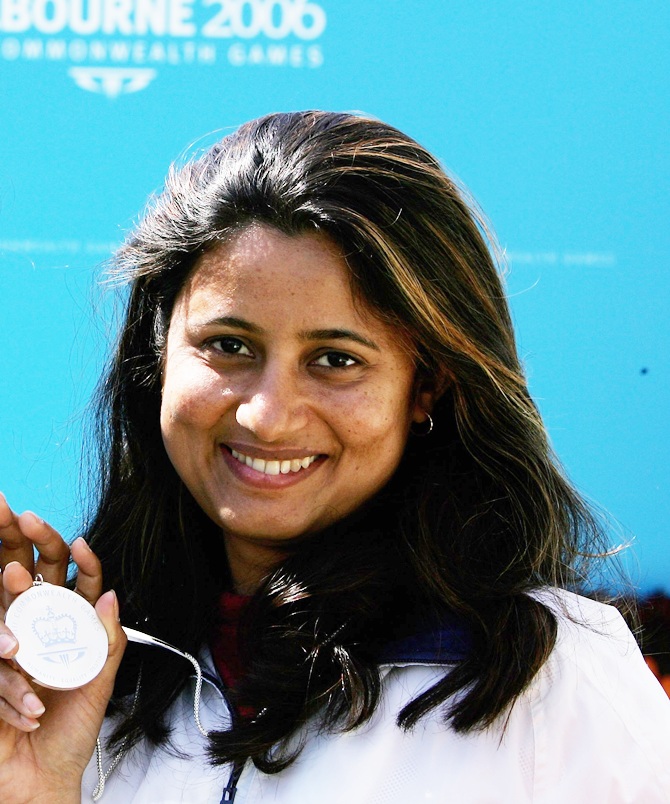
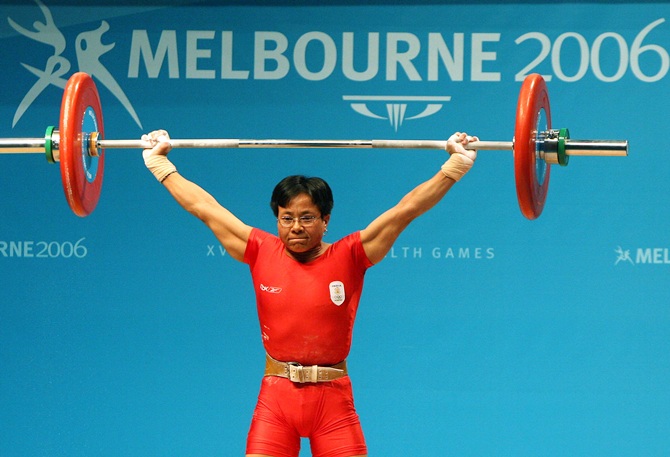
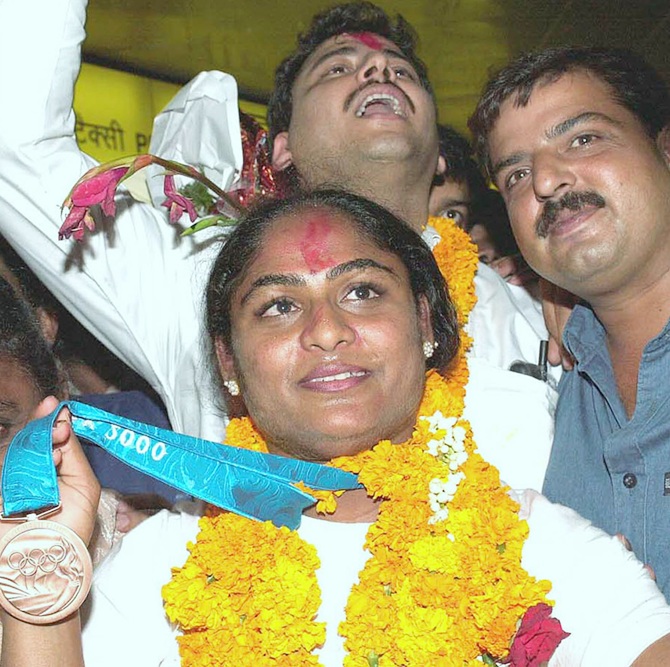
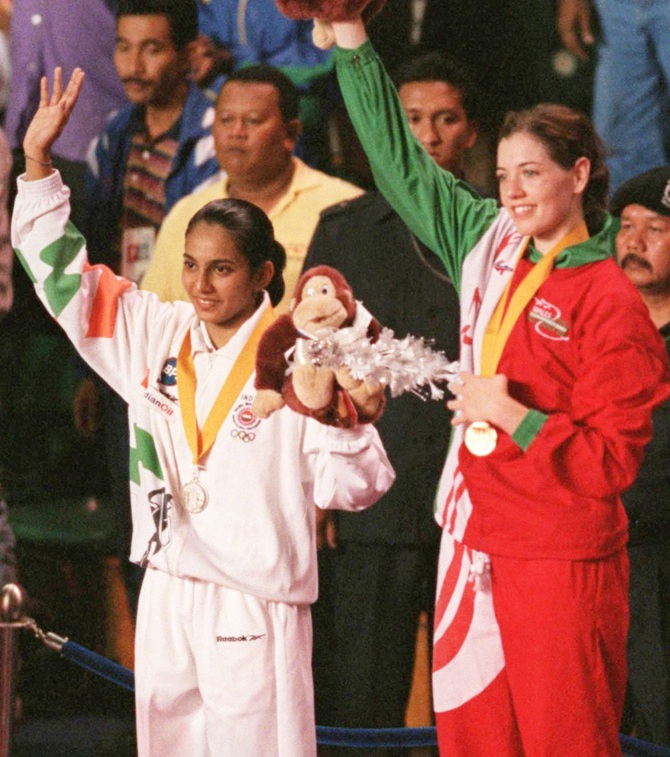
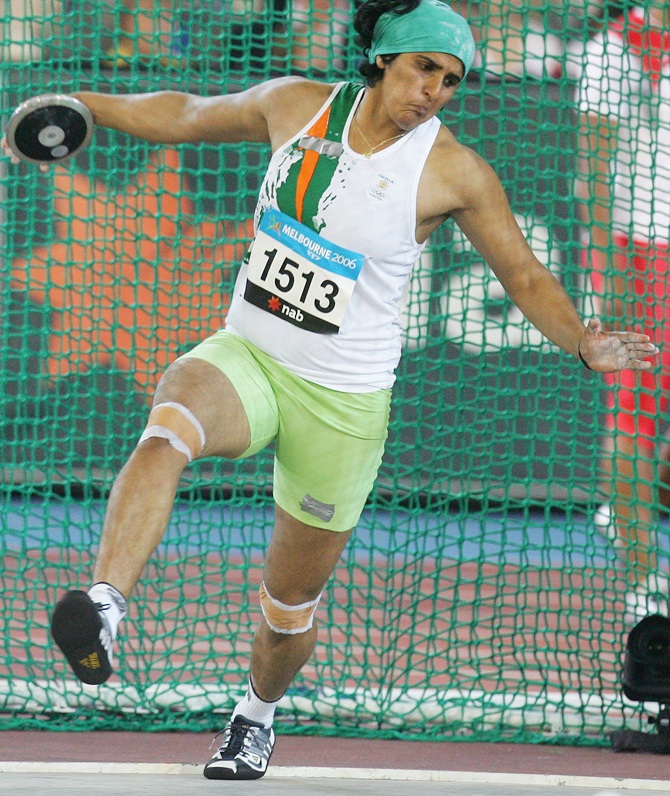
Comment
article